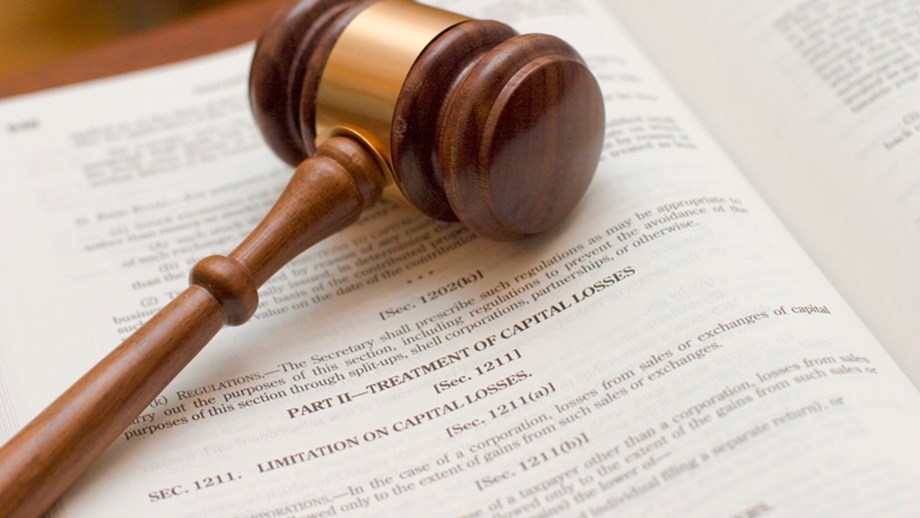Earlier this month I spoke at the annual conference of the Conditional Immortality Association of New Zealand, on divine holiness and hell. Defenders of the doctrine of eternal torment sometimes assure us that eternal torment in hell is necessary because God is very, very holy. But a biblical theology of God’s holiness actually offers no support at all to this view on hell. In fact, God’s holiness as depicted in the Bible offers more support for the doctrine of annihilationism – the view that God will finally remove all evil and those who commit it from creation. If you have 25 minutes to spare, take a listen!

When is an academic job a platform for you to carry out activism on behalf of your views on gender, punishing students who don’t share your personal opinion? When you’re a lecturer at the Auckland University, it turns out.
Recently, a photo showing essay question options in the sociology department at the University of Auckland has been doing the rounds on social media, and for obvious reasons. The question reads: “What is transgender theory? Why does transgender theory matter? (Essays that take a ‘gender critical’ position on transgender or question the validity of trans identities will be failed)”

The Ministry of Education is trying to force Bethlehem College, a Christian school, to change its statement of belief – a statement that reflects Christian beliefs. Specifically, they are trying to compel the school to remove their statement that they believe marriage is the union of a man and a woman, on the grounds that this discriminates against those who do not share this view or who are in a relationship outside of this definition. On the face of it, this is a shocking thing for a Government agency to do and an obvious affront to the right of the school to freely state its belief on a matter that is hardly a surprise. This is, after all, the Christian view of marriage. But here’s the thing: The grounds on which the Ministry is trying to make the school change its statement of belief on the one hand, and the reason the ministry is being urged to do so on the other, are quite different animals.
It’s a situation, I think, where a government agency is fronting what seem like reasonable grounds for their demand, while serving a more sinister purpose. That’s how a slightly cynical person might read this situation (and cynicism is perhaps wise in this situation).
We have a tendency to think our own sins aren’t that big a deal, or to find ways to downplay them or overlook them, while taking serious issue with those awful people on the other side of ideological divides. I’m something of an Evangelical Christian, and I’m very aware that it happens here in abundance.
Speaking of Evangelicals…. It’s cool to hate Evangelicals. You probably know that. I entered the word “Evangelicals” in a search of Twitter, to see what results I got. I got this:
Now it’s just a tweet, a random individual’s prejudice on display. I know. But everyone who spends time on social media (and doesn’t inhabit a circle of friends numbering in single digits) knows that actually, what you find is an absolutely constant, voluminous stream of a mixture of all sorts: Vitriol, contempt, general slander, obviously unreasonable generalisations, conspiracy theories, revolting claims, and so on. Don’t take my word for it. When I carried out this search, this is what I saw immediately. I did not have to go looking for these. These were among the first results:

Don’t think that you, a Christian, can avoid the teaching of the historic Christian faith by saying “but that’s just what conservative Christians think.” Christianity is conservative.
It was a year or two ago, and I was having a conversation with a young Christian with an impressive degree of unearned confidence (and let’s be honest, many of us have been that guy at some stage). We had talked briefly about universalism, a view he holds and I do not. Due to the generally unproductive nature of the exchange, I didn’t commit many of the details to memory. I had little hope of a fruitful conversation, I’ll admit, due to his (somewhat justified) reputation among his social media peers for disagreeableness and dismissiveness, along with extraordinary disdain for those he dubs “conservatives.” A couple of comments did, however, stand out to me. They raise an issue that I have often thought about in other contexts.
Apparently people like personal stories, so here goes.

You may have heard that there’s a protest going on. Here in Wellington, there are protestors camped outside Parliament. They are opposed to vaccine mandates, which mean that unless a person is up to date with their COVID-19 vaccines, they are restricted in terms of which business places they can go to, and in many cases they are subject to being dismissed from their job against their will. Three quarters of the protestors are not vaccinated at all and have been personally impacted by this, but everyone involved in the protest agrees that the mandates need to end. People are hurting over this.
Initially there was a strong police presence at the protest, and as was captured in some very unpleasant footage, police actions directly caused violence and a serious dent in the claims that police conducted themselves “professionally.” Now the police are ramping up their activities again (as they must), and it just doesn’t look like this is going to end well.
I have a side in this, in the sense that very basically, I agree with the protestors. Vaccination is a very good thing to do (a lot of the protestors would disagree with me there), but the mandates are a significant overreach of the state. The mandates have created a second class of citizens (something the Prime Minister openly agreed with before the mandates came into effect), extending even as far as the Church, which is now a segregated body of the welcome and the unwelcome (when the Church meets together).
Far be it from me to tell anyone what to think about this. But… Church, please think very carefully before you side with the powerful.

There is currently a Bill before Parliament to ban conversion therapy. It has passed its second reading, and only seven Members voted against it: Simon Bridges, Simeon Brown, Melissa Lee, Simon O’Connor, Shane Reti, Louise Upston, and Michael Woodhouse. They are all members of the National Party. That party allowed its members to vote according to conscience, rather than voting as a block. I do not know if any members of other parties would have voted against this Bill, had they been given the choice. They did the right thing, and I today am writing to them to thank them, and to encourage them in their stand. That letter (which I will send to them) is shared here.
No, I don’t want to see gay people coerced into torturous therapy, or indeed any therapy against their will (like anyone else). Who does? This Bill, however, would do far more than ban such treatment, which is already illegal. Conversion therapy, according to the Bill, is:
Any practice, sustained effort, or treatment that—
(a) is directed towards an individual because of the individual’s sexual orientation, gender identity, or gender expression; and
(b) is done with the intention of changing or suppressing the individual’s sexual orientation, gender identity, or gender expression.
So, why don’t I want to see a new Bill that bans this passed into law? Read on. My letter to these seven member of Parliament follows.

Souls are on the way out. Not just in our culture or in science, where some Christians may suspect “naturalism” as the culprit, but souls are on the way out of our Bibles. This is because of the ways in which our translations are getting better at conveying what was originally intended. In the King James Version of the Bible, translated in 1611 and the mainstay for Protestants until the 20th century, the English word “soul” appears 537 times. The New American Bible (1986) features the word 171 times, the NIV (1984) features it just 139 times, the NRSV (1989) features it 252 times, but that includes the Deuterocanonical books, and even the ESV (2001), which hearkens back to older more literal translations, features the word just 281 times. The difference is not because of any difference in the manuscripts that these versions are using but because of a better understanding of what the Hebrew and Greek words actually mean.

It can be difficult to admit that your hero left a legacy that is very… mixed.
You’re a villain if you have anything but unfettered praise to offer for Archbishop Desmond Tutu, now that he has passed away, aged 90. He was a great voice for justice against Apartheid. That is how many in the world will remember him, and understandably so. It is impossible to look back on so much of what he had to say about racial segregation in South Africa in the early 1980s and not be impressed. Just read this account from Jim Wallis:

